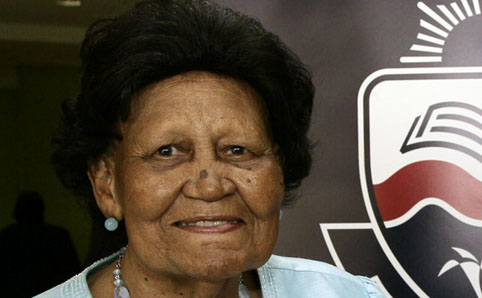Latest News Archive
Please select Category, Year, and then Month to display items
12 October 2020
|
Story Arina Engelbrecht
|
Photo Supplied
 Arina Engelbrecht from Organisational Development and Employee Well-being believes physical activity has a number of benefits for one’s health, including stress relief.
Arina Engelbrecht from Organisational Development and Employee Well-being believes physical activity has a number of benefits for one’s health, including stress relief.
Being physically active plays a big role in preventing the development of mental-health problems and in improving the quality of life of people experiencing mental-health problems.
Treatment for depression
Physical activity can be an alternative treatment for depression. It can be used as a stand-alone treatment or in combination with medication and/or psychological therapy. It promotes all kinds of changes in the brain, including neural growth, reduced inflammation, and new activity patterns are formed that promote feelings of calm and well-being. It releases endorphins – powerful chemicals in the brain that energise your spirit and make you feel good.
Physical activity can be very effective in relieving stress. Research in adults has found that physically active individuals tend to have lower stress levels compared to individuals who are less active. It also leads to improved sleep. When a person sleeps better and feels more rested, overall quality of life improves. They cope better with daily life stressors.
Reduce Alzheimer's risk
Regular physical activity can reduce your risk of developing Alzheimer's disease by up to 50%. It can also slow down further deterioration in those who have already started to develop cognitive problems. It stimulates the brain’s ability to maintain old connections as well as to make new ones.
A study asked people to rate their mood immediately after periods of physical activity (e.g. going for a walk/run, cycling, doing housework) and periods of inactivity (e.g. reading a book or watching television). Researchers found that participants felt more content, more awake, and calmer after being physically active compared to after periods of inactivity.
In conclusion, people who are physically active feel a sense of well-being, feel more energetic throughout the day, sleep better at night, have sharper memories, and feel more relaxed and positive about themselves and their lives.
“Being physically active not only changes your body, it changes your mind,
attitude, and your mood.” – Arina Engelbrecht
Memorial service for Ms Winkie Direko
2012-02-21
 |
| Ms Winkie Direko was a loved and respected Chancellor. |
The senior leadership, staff and students of the University of the Free (UFS) are saddened by the death of Ms Winkie Direko on Friday 17 February 2012.
Ms Direko, who was Chancellor of the university from July 1999 to February 2003, was the first black person and also the first woman to hold this position.
“Ms Direko was a much-loved person in the Free State as well as a loved and respected Chancellor of the UFS. Her continued involvement with the university was always appreciated by the university community. We honour her memory and her directional leadership as former Chancellor,” says Judge Ian van der Merwe, Chairperson of the UFS Council.
Prof. Jonathan Jansen, Vice-Chancellor and Rector of the UFS, says Ms Direko was one of South Africa's greatest teacher-leaders and one of the few former teachers he could really look up to. “Rest well, Ma Winkie; you left us a great example,” he said.
A memorial service will be held on:
- Thursday 23 February 2012
- at 14:00
A bus will leave the Centenary Complex at 13:00 for the service that will take place at the indoor sport centre in the Seisa Ramabodu Stadium in Rocklands.
Please RSVP to Tharina Naudé not later than Wednesday 22 February at 12:00 at x3829 or naudehc@ufs.ac.za.
It will be appreciated if you could wear your university branded clothes (shirt or blazer) to the service.
Media Release
21 February 2012
Issued by: Lacea Loader
Director: Strategic Communication
Tel: 051 401 2584
Cell: 083 645 2454
E-mail: news@ufs.ac.za